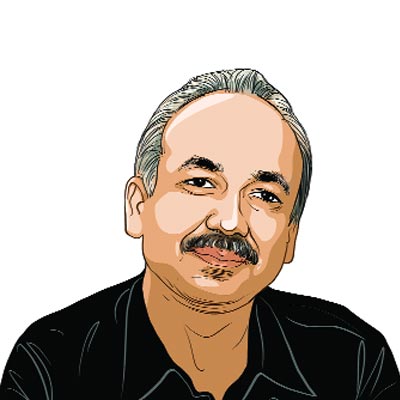Opinion Differences reign
Political squabbling has worrying repercussions in Nepal
The B.P. Koirala Institute of Health Sciences,which runs a prestigious medical college and a hospital in eastern Nepal,has been wracked by strikes. The institute,a gift from the Government of India to Nepal,is modelled on the All India Institute of Medical Sciences in Delhi. Now there is speculation about its future.
The B.P. Koirala Cancer Hospital in central Nepal,a gift from China,with modern facilities,especially for cancer treatment,is in a similarly chaotic situation. After the government,which has a Maoist leader as health minister,tried to put in place a new management with explicit political loyalty to his party,violent clashes broke out in the hospital. Patients needing regular treatment and chemotherapy have been asked to report later.
The seven universities in Nepal are without vice-chancellors for the past two-and-a-half months. Education Minister Gangalal Tuladhar has admitted that we have not been able to appoint VCs as the major political parties have failed to agree on it. The appointment of a vice-chancellor should hardly be a party affair,but in these days Nepal all plum positions and appointments are decided by the three major parties. Each party is trying to get its loyalists to head the universities.
This kind of an institutional impasse is not confined to the education and health sectors.
The constitutional council,which makes the final recommendation for appointment in constitutional bodies,has not been able to select the chief of the election commission or the head and members of the Commission of Inquiry into Abuse of Authority (CIAA),an anti-graft body,and many other institutions for over a year because each of the three major parties the Maoists,the Nepali Congress and the Communist Party of Nepal-Unified Marxist Leninist (CPN-UML) staked its claim to these posts. The CIAA chiefs post is the most sought after at the moment,since the parties believe that having a loyalist to head the anti-graft body could guarantee them protection from corruption inquiries.
The political parties,especially the big three,have been able to sell the idea that once the elusive new constitution comes into being,everything will fall into place. But no one knows if political behaviour will change overnight,and whether they will become accountable as soon as a new constitution gets drafted.
In the midst of all this,the annual economic survey for 2010-11,that was released by the government,shows the growth rate during the period was just 3.5 per cent,the lowest in the past decade. A turnaround seems unlikely in the present circumstances.
The budget to be presented this week could be a populist one,mostly an appeasement of the Maoist party,as its support is crucial for Jhalanath Khanal to continue as prime minister. The CPN-UML-led governments eagerness to please the Maoists was evident when the annual programme and policies of the government called the decade-long insurgency (1996-2006) that resulted in the killing of over 16,000 people a peoples war. The objections by many other parties,including the Nepali Congress,were hardly taken note of. There are also fears that a part of the budget allocation will go to the party coffers,as has happened in the past,as salary for Maoist combatants lodged in different cantonments.
Sources say the budget will offer compensation to the families of about 13,000 killed by the state during the peoples war,leaving out the families of over 3,000 security personnel from the list of beneficiaries.
Other political parties are taking a cue from this. Those based in Madhesh,plains contiguous to India,are demanding financial benefits for families of those who had lost their lives during their agitation for more autonomy for the region.
Immediate gain political and financial seems to be the motto of the ruling and the opposition parties. What is lacking is a serious commitment,matched by action,to have the constitution-drafting process completed within the new deadline.
Manmohan Bhattarai,a firebrand parliamentarian belonging to the opposition Congress,sums up: We are simply and solely pursuing money politics a politics of short-term gain at the cost of vital interest of nation and nationhood. Sadly,one cannot disagree.
yubaraj.ghimire@expressindia.com





